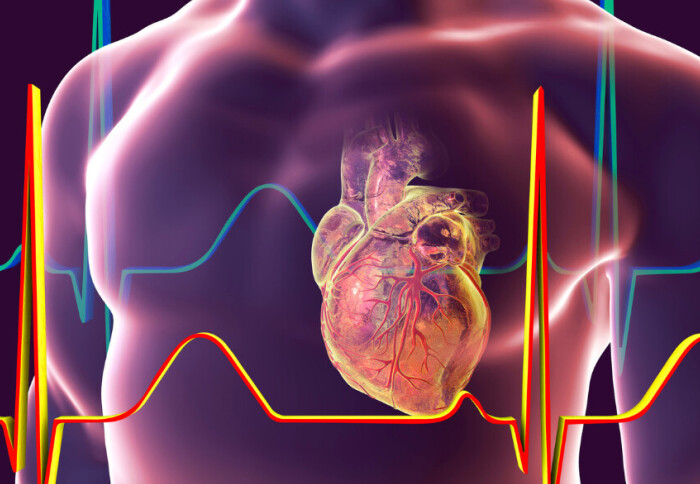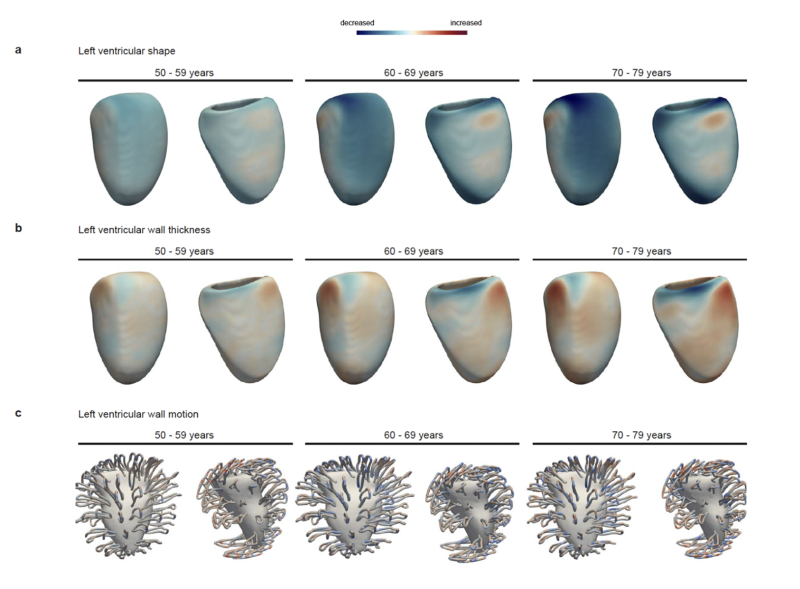How old is your heart? AI predicts “heart age” and pinpoints link to genes.

Scientists develop a new AI tool which calculates ‘Heart Age’ more accurately than ever and helps pinpoint genes for ageing.
Doctors and researchers developed new artificial intelligence (AI) tool that can detect signs of ageing in medical scans that are invisible to the human eye. The tool, developed at the MRC LMS, can help doctors determine ‘Heart Age’ and predict future risks of developing disease.
Researchers from the MRC LMS and The British Heart Foundation explained that the AI can calculate an “accurate” heart age from MRI scans as well as routine ECGs. For the first time, the tool is being used to pinpoint genes that could make the heart age faster.
This could complement current approaches to cardiovascular risk scoring as it looks at the cumulative effects of ageing on the heart and circulation over a lifespan.
Researchers are also able to develop 3D images mapping the heart’s shape and movement, allowing them to identify whether a person’s heart ‘looks’ and ‘moves’ like an old or young heart.
Read about how BBC’s Pallab Ghosh find out about his heart age here.
Why is a heart ageing important?
Ageing is a major risk factor for heart disease but affects people differently. Identifying people with premature ageing could help to target interventions to those most at risk. Until now it hasn’t been possible to measure ageing in the heart and circulation accurately.
The researchers found that high blood pressure, something that affects nearly a third of adults, was the strongest risk factor for premature ageing. Smoking, diabetes and obesity also contributed to faster aging.
What is special about this AI tool?
The AI tool was developed in one of the biggest studies of ‘Heart ageing’. Published in Nature Communications, researchers used MRI scans of the heart and blood vessels, as well as ECGs (electrocardiograms), from almost 40,000 people, to improve the ‘heart age’ prediction whilst also identifying the genes that drive the heart ageing process.
Using deep learning the researchers mapped out a “signature” of how hearts age, allowing researchers to accurately assess whether a person’s heart is ageing at a healthy rate or not.

Imaging data used by researchers along with AI to calculate ‘Heart Age’ by assessing ageing markers including heart shape, heart wall thickness and heart movement.
Heart doctors and researchers used the AI to discover genetic variants that affect the rate at which a person’s body can repair damage to the heart and keep the heart ‘young.’ Their findings could help inform future drug targets and diagnostic tests to prevent and treat heart failure.
Researchers explained that AI is a powerful tool to assess environmental factors that increase the age of your heart including smoking and obesity. The team are confident that their tool could be used in future studies to find other unknown environmental risks that alter our heart age.
What do the experts say?
Prof. Declan O’Regan, consultant radiologist and researcher at MRC LMS said, “Ageing is a leading risk factor for heart disease. We have trained AI to predict age from heart scans to help pinpoint genetic risk factors for accelerated aging. This could help prioritize new treatments to slow the rate of aging.”
Dr Mit Shah, researcher and cardiologist, funded by The British Heart Foundation said, “This exciting tool could personalise patient care in the cardiology clinic. It not only has the potential to motivate patients to change their lifestyles and improve their heart age, but also could enable us as clinicians to provide tailored therapies, helping them along the way.”
This work was done in collaboration with MRC London Institute of Medical Sciences, Imperial College London, King’s College London, Bayer Pharmaceuticals. This work was funded by the Medical Research Council, the British Heart Foundation and Bayer.
Article supporters
Article text (excluding photos or graphics) © Imperial College London.
Photos and graphics subject to third party copyright used with permission or © Imperial College London.
Reporter
Ms Sofia Velazquez Pimentel
Institute of Clinical Sciences